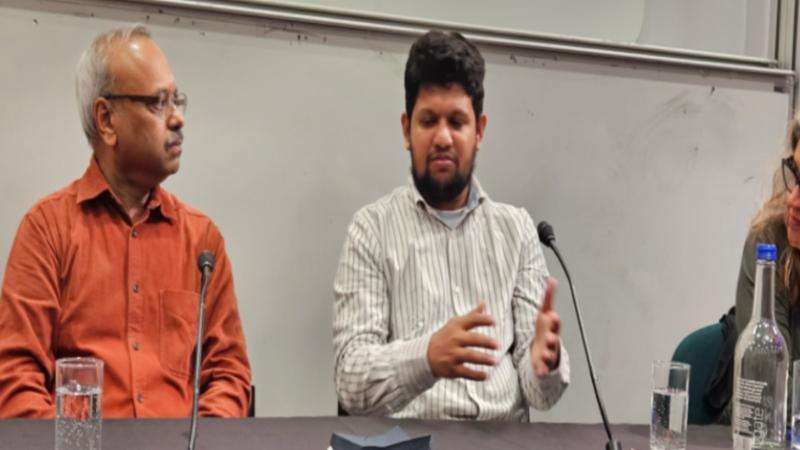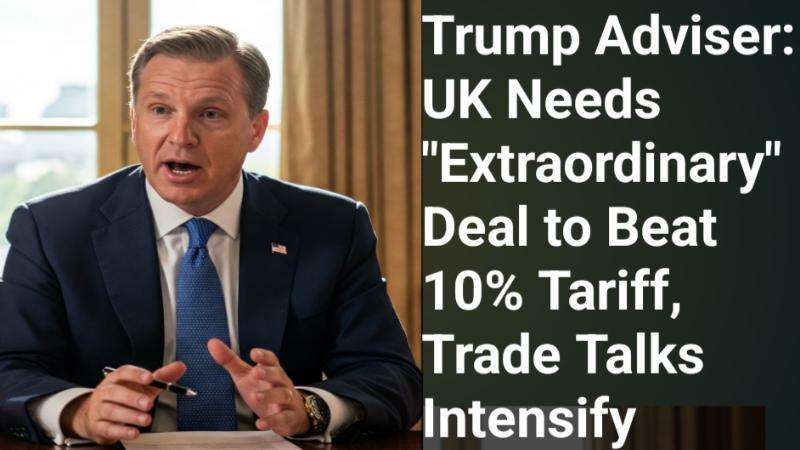The prospect of the UK securing a preferential trade deal with the United States has been cast into doubt, with a senior adviser to President Donald Trump asserting that only an “extraordinary deal” would prompt the US to lower the existing 10% tariff. This revelation comes as Sir Keir Starmer’s government continues its efforts to mitigate the impact of US trade policies on the British economy, Daily Dazzling Dawn understand.
Kevin Hassett, a key economic adviser to President Trump, stated on CNBC that the 10% tariff, now applied broadly to most nations exporting goods to the US following a temporary halt to more severe “retaliatory” tariffs, is likely to remain the baseline. “I think everybody expects that the 10% baseline tariff is going to be the baseline,” Hassett explained, emphasizing that any deviation would require a significantly compelling agreement. He also indicated that the White House is currently engaged in negotiations with approximately 20 countries, with two deals nearing completion.
Prime Minister Starmer, addressing concerns about the UK’s standing with the US administration, refuted claims that President Trump was ignoring his calls. “No, not at all. You have to understand that for the UK and the US, we’re actually talking all the time,” he asserted, highlighting the ongoing dialogue between the two nations.
Starmer also defended the UK’s strategy of avoiding retaliatory measures against the US tariffs, arguing that maintaining a strong relationship with the US provides significant advantages. He acknowledged the ongoing discussions with the US regarding mitigating the tariffs' impact, noting that no business sector has advocated for initiating a trade war.
The recent 90-day pause on higher tariffs, announced by President Trump, provided temporary relief to global markets, including London’s FTSE 100. However, the underlying tensions remain. The UK government is pursuing a dual strategy: seeking a trade agreement with the US to alleviate tariff pressures while also strengthening trade ties with other nations to diversify its economic dependencies.
Chancellor Rachel Reeves is scheduled to engage with US officials during the IMF spring meeting in Washington at the end of April, aiming to advance trade negotiations. Additionally, the UK-EU summit on May 19 presents an opportunity to revitalize the UK’s relationship with the European bloc.
President Trump’s decision to pause higher tariffs on trading partners like Japan and the EU was accompanied by a declaration to increase tariffs on Chinese imports to 125%, escalating the ongoing trade conflict between the US and China. China has vowed to “fight to the end” against these levies.
Furthermore, existing 25% tariffs on imports of cars, steel, and aluminum to the US remain in place, continuing to impact global trade. The market volatility persisted, with Japan’s Nikkei share index experiencing a significant drop in early trading on Friday.
The UK government now faces the challenge of navigating these complex international trade dynamics, balancing its relationship with the US while diversifying its trade portfolio to safeguard its economic interests. The outcome of the upcoming negotiations will be crucial in determining the future of UK-US trade relations and the broader economic stability of the UK.
_2.jpg)
_3.jpg)


_3.jpg)



.svg)



